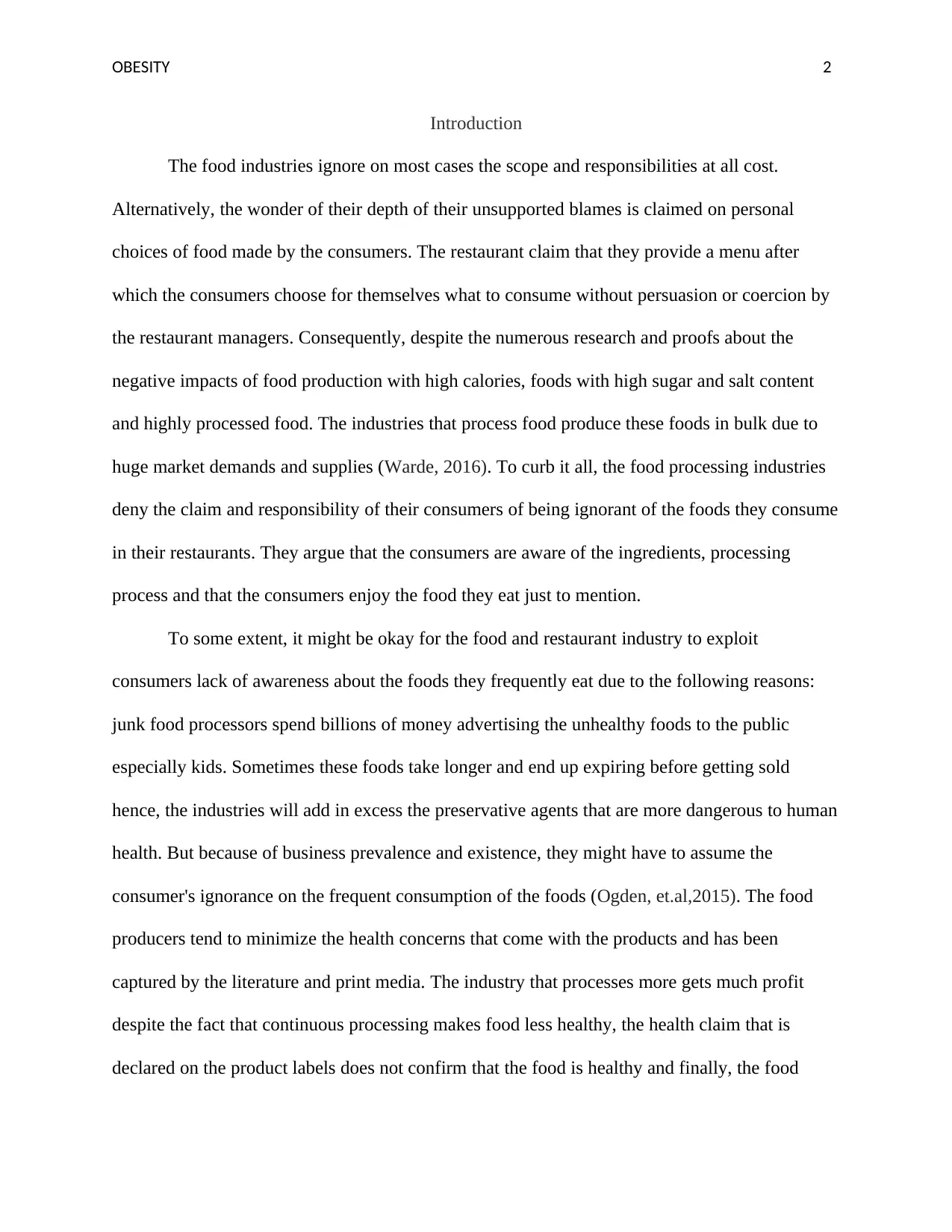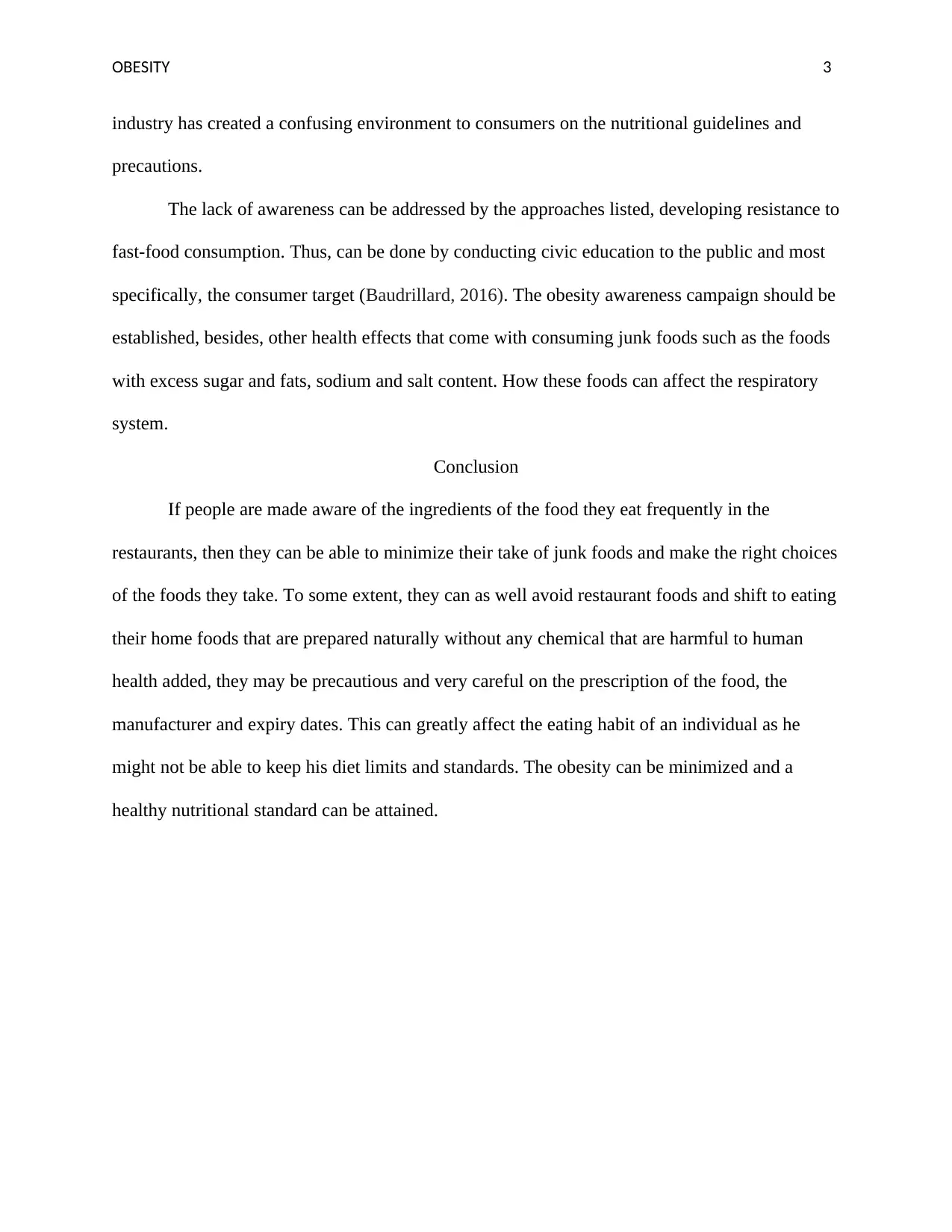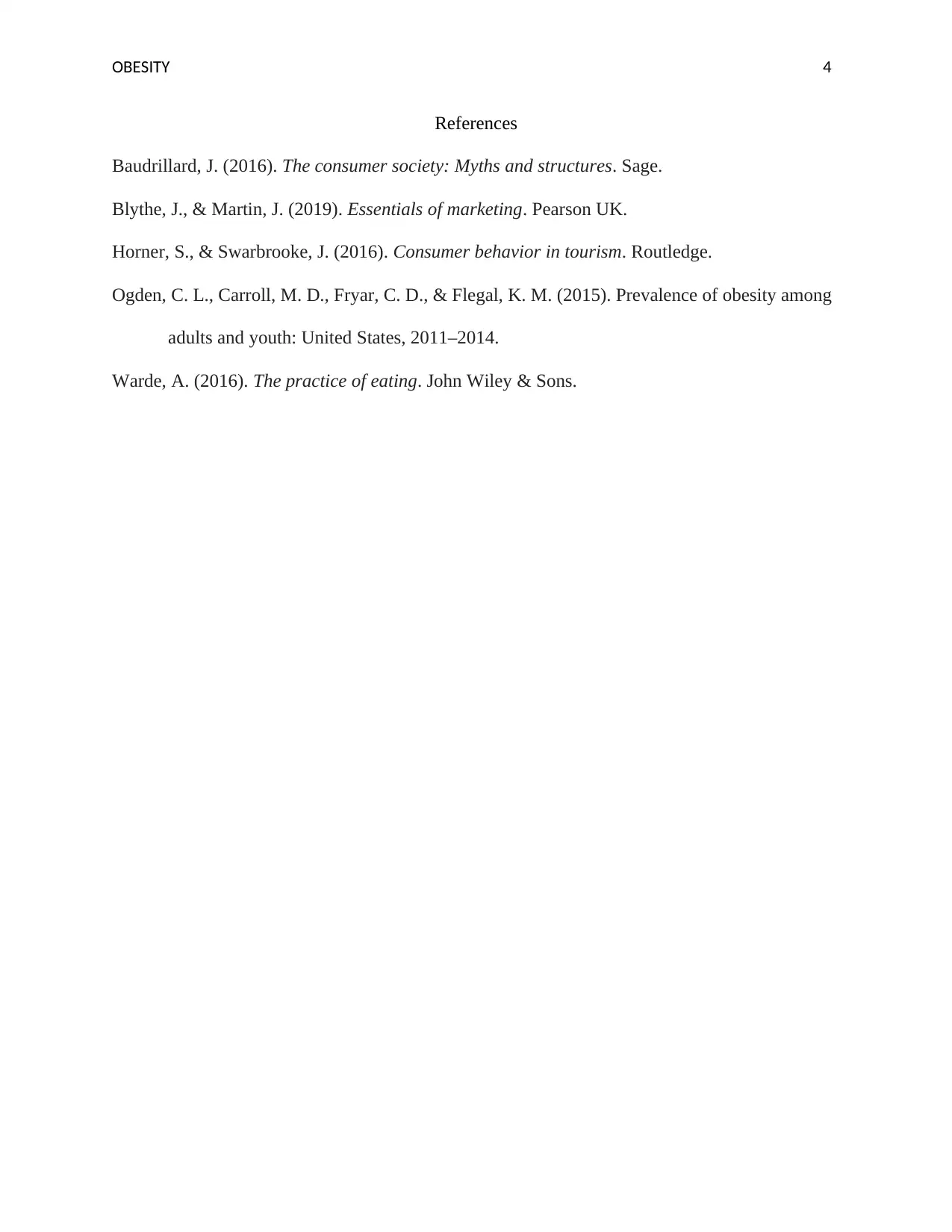The Impact of Obesity: A Healthcare Student's Essay Analysis
VerifiedAdded on 2023/03/30
|4
|617
|121
Essay
AI Summary
This essay, written by a healthcare student, examines the complex issue of obesity, focusing on the food industry's responsibility and consumer awareness. It argues that the food industry often prioritizes profits over consumer health, producing and marketing high-calorie, high-sugar, and highly processed foods, while downplaying the negative impacts of these products. The essay highlights the industry's denial of responsibility and its exploitation of consumer ignorance, pointing to the vast sums spent on advertising unhealthy foods, the use of preservatives, and the creation of confusing nutritional guidelines. The author advocates for increased public education to counter the influence of fast food, promoting awareness of the health effects of unhealthy eating habits, and encouraging informed food choices to mitigate obesity and promote healthier nutritional standards. The essay concludes that increased awareness can empower consumers to minimize their intake of junk food and make healthier dietary choices, leading to improved health outcomes and a reduction in obesity rates.
1 out of 4











![[object Object]](/_next/static/media/star-bottom.7253800d.svg)